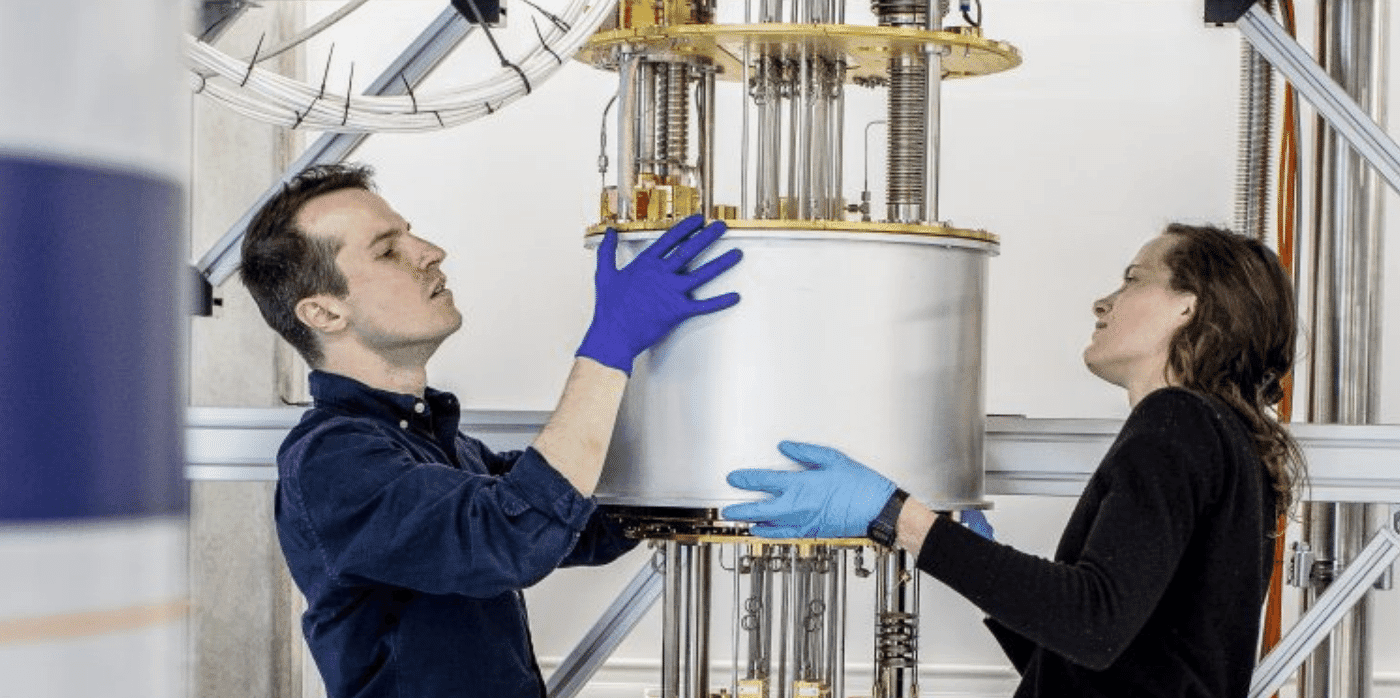New scalable quantum computing hardware used to boost cybersecurity
Spotted: All the complexities of the digital world we see today are ultimately based on a system of ‘bits’ – switches that can be either on or off, 1 or 0. And to date, the equation for increasing computing power has been simple: fitting more and more switches (in the form of transistors) onto smaller and smaller microprocessors. But this will not be the case for much longer.
According to the counter-intuitive laws of quantum physics, on the subatomic scale, particles like electrons, photons, and ions can exist in more than one state at any time, and it’s this strange fact that forms the basis of quantum computing. The foundation of a quantum computer is no longer a bit but a ‘qubit’ (quantum bit). A qubit is not bound to being 1 or 0 – instead, it can be 1, 0, or both 1 and 0. This means that a quantum computer can perform multiple processes at once, massively increasing the speed and accuracy with which it can solve complex calculations. Today’s quantum computers remain embryonic but the technology is rapidly improving.
Quantum computing has long been dominated by Chinese and American giants such as Huawei, Baidu, Google, and IBM. But now, UK-based Oxford Quantum Circuits (OQC) has become the latest startup to receive funding to enter the market. The company has developed hardware that addresses one of the key challenges when it comes to scaling quantum computers up to a level of processing that is commercially useful. As you add qubits onto a 2D silicon chip, increasingly complex control wiring is required to support those qubits. In a ‘traditional’ quantum system, complicated engineering is required to fit all that wiring onto the chip alongside the qubits. This added complexity reduces the quality of each qubit while increasing the probability of engineering mistakes, creating a trade-off between scale and quality.
OQC’s solution is to use a 3D rather than a flat structure. Using a 3D structure means that a lot of the control wiring can be taken off the chip, increasing simplicity and flexibility. The company claims this removes the need to compromise on quality to achieve scale.
OQC’s technology is far from an academic exercise. It has potential applications in financial services, pharmaceuticals, and logistics, and, since February, the company’s latest machine—called ‘Lucy’—has been publicly accessible via the cloud using Amazon Bracket, the quantum branch of Amazon Web Services. The company also offers what it calls ‘Quantum-Computing-as-a-Service’ via a private, tailor-made platform. The startup’s first client is Cambridge Quantum, which is using the platform to generate superior cryptographic keys for use in advanced cybersecurity.
Quantum computing, is a sometimes esoteric but increasingly important issue. Springwise has previously produced a Tech Explained article on the topic, and has spotted several other quantum computing innovations such as quantum algorithms for startups aiming to harness quantum computing power.
Written By: Matthew Hempstead
18th August 2022
Email: hello@oxfordquantumcircuits.com
Website: oxfordquantumcircuits.com

